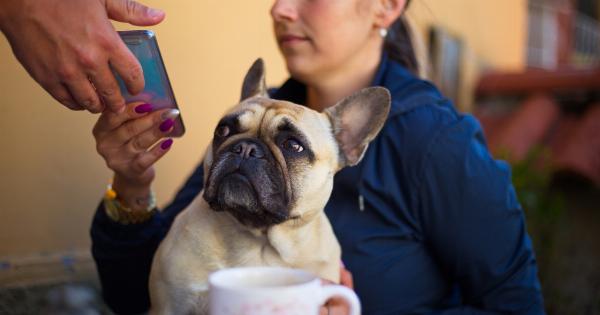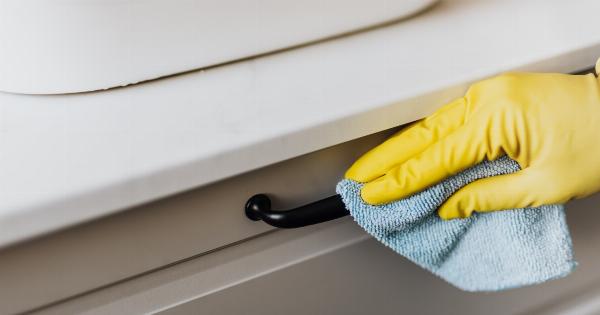Bringing home a new puppy is an exciting and joyful experience. As a responsible pet owner, your goal is to raise a happy and healthy puppy that will grow into a well-behaved and well-adjusted adult dog.
However, raising a puppy requires knowledge and effort to avoid common mistakes that can hinder their development. In this article, we will discuss some crucial mistakes to dodge when raising a happy, healthy puppy.
1. Lack of Socialization
Socializing your puppy is essential to ensure they grow up to be well-adjusted and confident dogs.
Many owners make the mistake of keeping their puppies confined to their homes, which restricts their exposure to new experiences, people, and other animals. Gradually introduce your puppy to different environments, sounds, sights, and smells to help them become comfortable and confident in various situations.
2. Inconsistent Training
Consistency is key when it comes to training a puppy. Inconsistency can confuse your puppy and make it challenging for them to understand what is expected of them. Set clear and concise rules from the beginning and consistently reinforce them.
Use positive reinforcement techniques such as rewards, praise, and treats to encourage good behavior.
3. Neglecting Exercise Needs
Puppies have boundless energy and need regular exercise to stay healthy and happy. Lack of physical activity can lead to obesity, behavioral issues, and pent-up energy.
Make sure to provide your puppy with daily exercise through walks, play sessions, and interactive toys. Consult your veterinarian to determine the appropriate amount of exercise for your puppy based on their age, breed, and health condition.
4. Improper Nutrition
Providing your puppy with a balanced and nutritious diet is crucial for their overall health and development. Many owners make the mistake of feeding their puppies inappropriate food or overfeeding them, leading to obesity and other health problems.
Consult with your veterinarian to choose the right puppy food that meets their specific nutritional needs. Follow the feeding guidelines and monitor their weight to ensure they’re getting the right amount of food.
5. Overlooking Dental Care
Dental health is often neglected in puppies, but it’s essential to establish good oral hygiene habits from the start. Neglecting dental care can lead to dental diseases and discomfort for your puppy.
Introduce regular teeth brushing using a dog-specific toothbrush and toothpaste. Additionally, offer appropriate chew toys and treats to help clean their teeth and gums.
6. Lack of Mental Stimulation
Puppies are highly curious and intelligent creatures who require mental stimulation to prevent boredom and destructive behaviors. Provide them with a variety of interactive toys, puzzle games, and training sessions to engage their minds.
Additionally, rotating their toys regularly can also help keep them engaged and prevent them from becoming bored with their playthings.
7. Punitive Training Methods
Punitive training methods, such as physical punishment or yelling, can have negative effects on your puppy’s emotional well-being and can lead to fear and behavioral issues.
Focus on positive reinforcement training methods that reward good behavior instead of focusing on punishing undesirable actions. This will create a bond of trust and cooperation between you and your puppy.
8. Lack of Routine and Structure
Puppies thrive on routine and structure. Lack of a consistent schedule can lead to confusion and anxiety. Establish a daily routine for feeding, exercise, training, and rest.
This will help your puppy feel secure, understand expectations, and develop good habits more easily.
9. Ignoring Health Care Needs
Regular veterinary care is essential for the overall health and well-being of your puppy. Neglecting vaccinations, deworming, and preventive medications can expose your puppy to various diseases and parasites.
Follow your veterinarian’s recommendations for vaccinations, regular check-ups, and preventive care. Stay proactive in monitoring your puppy’s health and address any concerns promptly.
10. Lack of Patience and Understanding
Raising a happy and healthy puppy is a journey that requires patience and understanding. Puppies, like humans, make mistakes and have their own unique personalities. Avoid becoming frustrated or losing your temper when your puppy misbehaves.
Instead, invest time and effort in positive reinforcement training, socialization, and understanding their needs. Celebrate their progress and enjoy the moments of joy that come with puppyhood.
Conclusion
Raising a happy, healthy puppy requires avoiding common mistakes and providing them with the care, attention, and training they need.
By socializing them, being consistent in training, fulfilling their exercise and nutritional needs, and providing mental stimulation, you can set your puppy up for a lifetime of happiness and well-being. Remember to always prioritize their health care, create a structured routine, and approach training with patience and understanding. With your love and guidance, your puppy will grow into a joyful and well-adjusted adult dog.
























